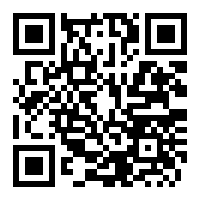 |
Opinion Essays Facts and their derivitives form my opinions and commentaries. Everyone Has an Opinion. Your Opinion is Vital Truth is elusive! |
 |
| Home | Opinion Essays
|
Issues |
Rawlins |
|
Sticks and Stones and Words
"Sticks and Stones may break my bones, but words can never hurt me." is an old homily and I am thinking that it should be engraved on some people's retina. The other retina should have its corollary, "People in glass houses should not throw stones." Words mean things. The average American, it is said, has a vocabulary of about 3,000 words. The average American journalist uses about 6,000 words at work. These statistics are interesting, if you think about them for a moment. An American 5-year-old has a vocabulary of about 1,500 words and he will use them reasonably well. A 10-year-old's vocabulary will have increased to about 7,000 words, of which he only uses barely more than he did at five years old, 2,300 words. By the end of High School, a kid's vocabulary will have risen to 20,000 or so,and after finishing university, 60,000 or so. Here's the rub - their functional vocabulary remains down at the 2,000 to 6,000 word inventory. The final nail in the coffin of American vocabulary is the fact that most people do not know what a third of the words in their vocabulary actually mean, and my guess is that the percentage has GOT to be at least half. I am writing today about words, because words convey concepts and those concepts directly affect the relationships between people. There are ordinary words, like those in a common greeting, "Hola!", "Hello!", "How are you?", "Where's the keg, dude?" ordinary stuff. Then you have the words of power, "Let's see some I.D.!", "Get out of the vehicle and lay down on your stomach, NOW!", "How do you plead, Guilty or Not Guilty?" If you have never heard these words, stand by, they are in your immediate future. There are also words of power that we all use, because humans are imitative and we suck up to power every chance we get. There is an entirely separate vocabulary of power created by people who have been given delegated authority for conduct that would get them lynched or tarred and feathered if they attempted the same conduct as ordinary people. For us, the words "person" and "individual" have only one meaning. But for people in power, they are special words with at least four hundred identifiably separate meanings. What "person" is intended to identify by someone exercising power is subject to the context, jurisdiction and diligence of the speaker. There are lots and lots of words which do not mean the same thing from people who speak with power English as they mean in common English. Politically incorrect language has now progressed to law-enforcement. Contemporary adoption of this language, "crimes motivated by the actual or perceived race, color, religion, national origin, gender, sexual orientation, or disability of any person.” has broad implications for our vocabulary. If I were to spit on your shoe, it is an assault, a crime. Spit on anyone's shoe and the crime is the same. However, if I say, "Take that, you honkey, paleface, mackerel snapper, Yankee, son-of-a weak-wristed moron." the petty insult elevates the assault to big-time criminality at sentencing. See what words can do? Our government kidnapped Ernst Zundel here in the good ol' USA, extradited him to Canada, whereupon he was immediately extradited to Germany to stand trial for his expounding at length on the veracity of the Holocaust. Words. Forbidden words. Prison. Forbidden words now abound in our "free" country. Even the use of words of legitimate form used in legitimate context can be exploited by people in power, because they have the sole power to make the words mean what they want them to mean. The old Alice-in Wonderland problem that Lewis G. Carroll so delightfully explained. The policies and words of people in power are shamelessly imitated by common people and this deterioration of effective communication contributes to our losses of individual rights, liberty to exercise our rights freely and especially to our loss of control over people with power. When we use their words, not understanding that they mean differently than we assume, we hang ourselves and are angered at the "abuse of power" that we invite by our ignorance. We should be angry, but at ourselves for being morons. We should be angry for allowing people in power to invent a language that looks and sounds like ours but is not ours. Our remaining liberty hangs on a thread. The hijack of our governing processes will change our lives during the next three years, the change will be complete by 2012. If we pretend that being apolitical, not speaking out or standing up will get us safely through this mess, we are dead. Enjoy. Good luck - you'll need lots of it.
|


